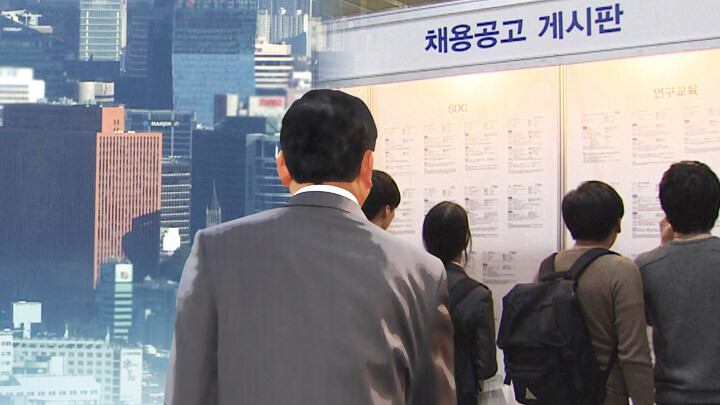
With the prolonged economic downturn and increasing internal and external uncertainties, corporate sentiment has significantly deteriorated. A survey reveals that 6 out of 10 major companies have either not established new recruitment plans or do not intend to hire new employees.
On the 27th, the Korea Enterprise Federation, through a survey conducted by the polling agency Research & Research targeting the top 500 companies by sales, released the "2025 First Half Year New Graduate Recruitment Plan" results. According to the findings, 61.1% of the surveyed companies have either not established new recruitment plans or do not plan to hire new employees.
Specifically, 41.3% of companies have not yet decided on their recruitment plans, while 19.8% have no plans to hire. Compared to the same period last year, these figures have increased by 3.9%p and 2.7%p, respectively.
Even among the 38.9% of companies that have established recruitment plans, 28.6% intend to reduce their hiring scale compared to the previous year, raising concerns about a continued hiring freeze.
Only 59.2% of companies plan to maintain their hiring scale, and a mere 12.2% plan to increase it.
Particularly in industries facing downturns, such as construction, petrochemicals, and steel, the proportion of companies with first-half recruitment plans has plummeted to below 30%.
By industry, the proportion of companies with undecided or no recruitment plans is highest in: △Construction (75.0%) △Petrochemicals and products (73.9%) △Metals (steel, etc. 66.7%) △Food (63.7%).
The primary reason companies cite for reducing new recruitment is "austerity management to cope with increasing internal and external uncertainties and deteriorating corporate profitability" (51.5%). Other reasons include "prolonged global economic downturn and economic slump due to high exchange rates" (11.8%) and "difficulty in restructuring due to employment rigidity" (8.8%).
Conversely, companies planning to expand hiring cite "securing future talent regardless of economic conditions" (83.3%) and "improvement in the economic situation of their industry" (16.7%) as their reasons.
In the first half of this year, companies are expected to favor rolling recruitment over regular open recruitment. 63.5% of surveyed companies indicated they would use rolling recruitment for new graduate hiring.
Among these, 26.2% plan to conduct "rolling recruitment only," while 37.3% plan to "combine open recruitment and rolling recruitment." The proportion of companies using rolling recruitment has increased by 5.0%p compared to last year.
With a clear trend favoring experienced hires, the recruitment of "experienced new hires" (those who gain practical experience at other companies and rejoin as new hires) is expected to expand.
Companies identified "expansion of rolling recruitment" (19.9%) as the top factor influencing the first-half recruitment market, followed by "intensification of the preference for experienced new hires" (17.5%), "strengthening the verification of organizational culture fit" (15.9%), "strengthening the recruitment of experienced hires" (14.3%), and "increased use of artificial intelligence (AI) in recruitment" (13.5%).
To stimulate new graduate recruitment, companies suggested policy measures such as "inducing corporate investment and employment expansion through regulatory easing" (39.7%), "expanding incentives for companies that increase employment" (19.8%), and "creating diverse jobs by resolving employment rigidity" (13.5%).
Lee Sang-ho, Head of the Economic and Industrial Division at the Korea Enterprise Federation, emphasized, "As companies enter austerity management due to the prolonged economic downturn and concerns over the spread of protectionism, the recruitment market is also freezing. Along with regulatory easing to boost corporate vitality, tax support to expand employment capacity, such as extending the sunset of the integrated investment tax credit and expanding the scope of temporary investment tax credit, is urgently needed."
[Copyright (c) Global Economic Times. All Rights Reserved.]






























